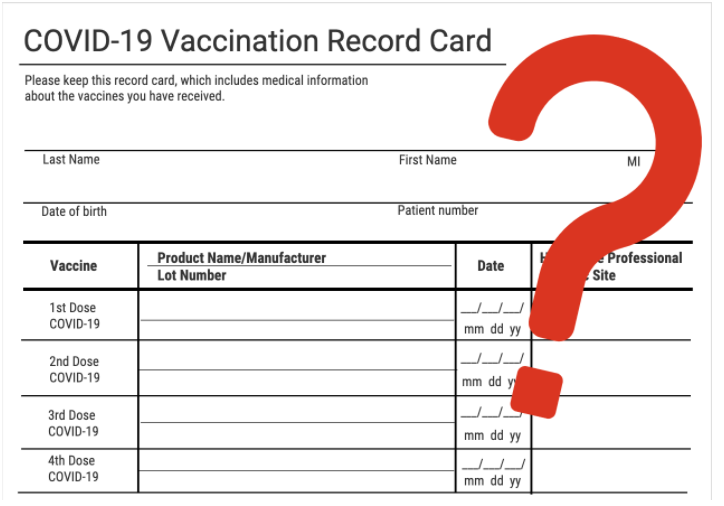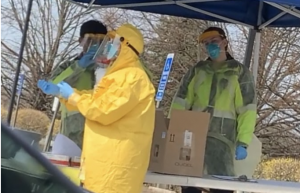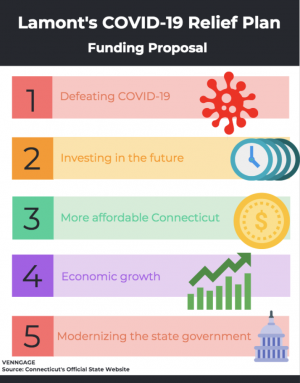Vaccination “honor system” warrants not so honorable outcome
Vaccine cards can serve as a way to verify the vaccination status of individuals. New York introduced a new vaccination verification app, the Excelsior Pass, to help people share their vaccination statuses according to the National Public Radio.
Connecticut launched into a new phase of COVID-19 safety regulations on May 19. All sector regulations for reopening were lifted, with the exception of certain mask-wearing mandates. Masks are no longer required outdoors and vaccinated individuals are not required to wear them indoors. Despite this, businesses may choose to continue to require their customers to wear masks if they feel it is necessary.
The Centers for Disease and Prevention, or the CDC, have also changed their guidance. Fully vaccinated people can resume activities and domestic travel, avoid testing or self-quarantine before and after travel and refrain from testing and quarantine following a known exposure.
The introduction of these new policies raises the question on how to decipher between who is vaccinated and those who are not. The current system, which is based on a code of honor, will prove unreliable. It will lead to inevitable dishonesty. Without a way to manage and supervise the vaccination process, it can leave the door open for people to be mistruthful about their vaccination status. As a country, we should have had the forethought to implement a status system when planning the vaccine rollout.
As of right now, according to CT Insider and Connecticut Public Radio, 3,805,000 doses have been administered in Connecticut. Around 2,164,655 people, or 60.7% of the population, have received at least one dose. In Westport, specifically, 54.6% of people are fully vaccinated. Although Connecticut has been an incredible example for timely distribution and administration of the vaccine, almost half of the population has still not received it yet.
In order to maintain low rates of transmission and avoid unnecessary hospitalizations, a new system is required to take the place of the honor system in order to oversee these new rules. Vaccine cards are a possible solution to this pressing problem. It can provide documentation and verification for vaccinated individuals.
However, it can also lead to people forging the cards. It is illegal to create, purchase or sell vaccine cards, but this has not discouraged certain attempts at forgery. With more businesses and activities continuing to reopen, this temptation can result in a significant number of people forging these cards. This is especially true with recreational entertainment such as sporting events and concerts which likely will require vaccinations to attend. People might be enticed to lie about their vaccination status in order to join this new normalcy. Connecticut supporting the creation of a state run vaccine verification app could help to make this problem negligible.
It is necessary to make a concerted effort to prevent lies and mistrust from spreading. For now, the “honor system” will breed doubt, uncertainty and hesitation. It is not adequate to rely on simply personal integrity. Too cautious does not exist when it concerns a public health crisis and the confidence of the community.




















































